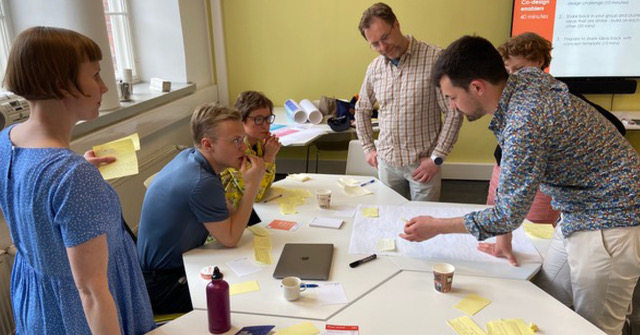New report on democratic innovations
Since 2020, Digidem Lab is part of the European research consortium Collective Intelligence through Digital Tools (COLDIGIT).
Over three years, the consortium is deepening its understanding of participatory democracy, studying in detail different practices and methods in Gothenburg, Helsinki and Trondheim. A report has now been published by the UK innovation agency Nesta, outlining a framework for successful democratic innovation in public organisations.
In addition to Digidem Lab and Nesta, the consortium also includes the University of Gothenburg, the University of Helsinki and the Norwegian research institute Sintef. Studies have been conducted on how digital democracy can be used to create collective intelligence and how it can help solve societal problems. The aim is to generate new knowledge about innovative digital tools and approaches, to understand how they can support the governance of complex societal processes and contribute to local decision-making with and for citizens in the Nordic region.
Barriers and success factors
Building on the collaboration, Nesta has now published a report. The report provides a systematic account of typical challenges and success factors that can arise when public organisations embark on democratic innovation and participatory democracy. The report presents a framework for how public institutions can succeed in democratic innovation. The framework is based on three areas:
- Delivering democratic innovations, giving residents, citizens or members the opportunity to train themselves in participation, while the organisation trains itself in participatory processes
- Expand democratic innovations, so that more people affected by the issue at hand have and take the opportunity to participate in a democratic process
- Incorporate the democratic innovations into the governance logic. This is to strengthen transparency and trust as more areas become subject to democratic innovation
Through housing budgets in Biskopsgården and Hammarkullen, Digidem Lab has demonstrated the strength of collective intelligence and democratic innovations, where tenants have been able to decide on a certain share of a budget and what the money should be used for to develop the neighbourhood. Housing budgets are a good example of how those who are directly affected by an issue are the experts and should be involved in decision-making. The work provided important insights for the research project in terms of citizen participation and trust building between public organisations and citizens.
Through a participatory and community-led approach, Digidem Lab demonstrated the importance of expanding who and how people participate in democratic innovations like participatory budgeting. Their work in Biskopsgården and Hammarkullen provided rich insights into citizen influence over these processes, and its role in rebuilding trust between institutions and underrepresented neighbourhoods.
Oli Whittington, Project Manager Democratic Innovation, Nesta.
We at Digidem Lab are pleased and proud to have been part of producing this report. Not least, it has been valuable to be able to test and evaluate the methods and tools used in our assignments. Through the project, we get the chance to make the approaches even more understandable and accessible.
Want to know more?
If you would like to know more about the work of COLDIGIT, the content of the report, or what this could mean for your organisation, we would love to hear from you!




